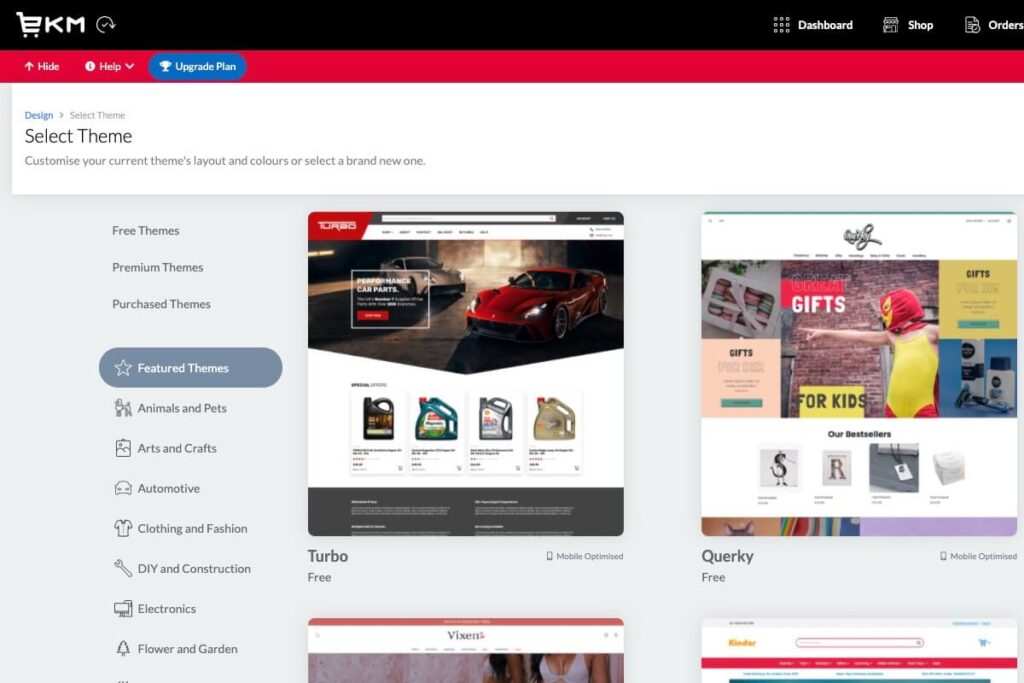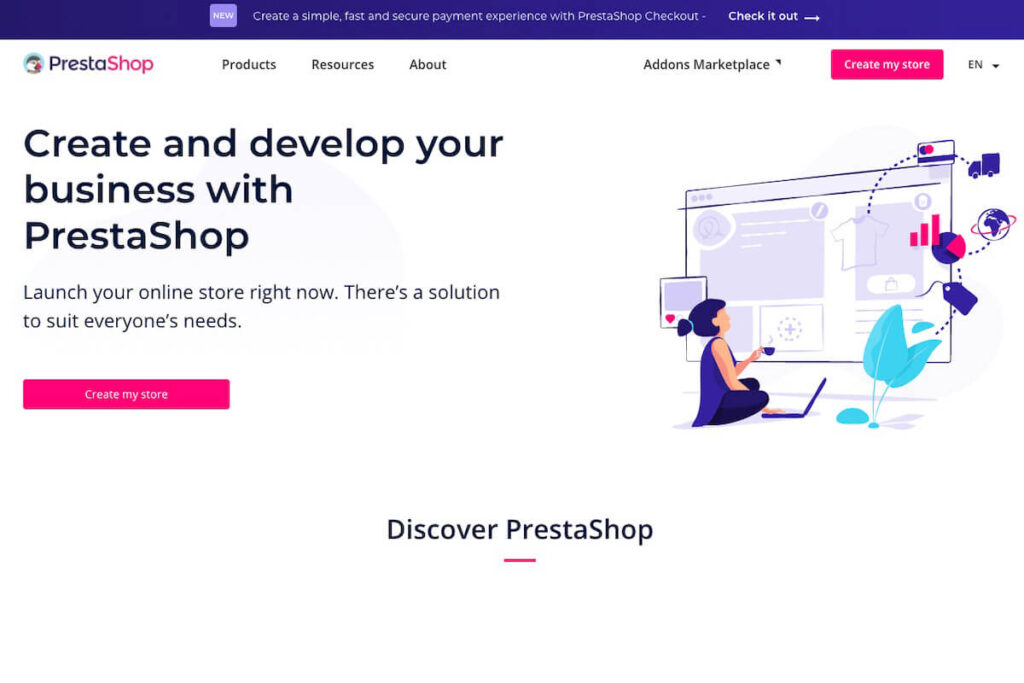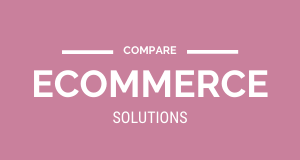Are you looking to build an online shop? Compare the features, advantages and disadvantages of EKM vs Shopify vs PrestaShop.

EKM, previously EKM Power Shop, is an eCommerce platform with a focus on support. Websites are reviewed and enhanced on a regular basis. Are you looking for a fully hosted online shop solution with great SEO, free SSL, no transaction fees and your own account manager who will work with you? EKM offers all this and more.

Shopify is a subscription based eCommerce platform. You can sell products directly on your website, and across multiple marketplaces and social media. You can link it to your domain name. They have their POS (point of sale) system that allows you to sell your products on the go or in your brick-and-mortar store.

PrestaShop is a self-hosted platform, which means that its software can be installed on any server you want. The software is free to download and use, however you will need to pay for hosting.
It is likely that you will need to buy several add-on modules.
EKM
EKM is a UK-based with your own dedicated support manager to help you build your online shop
How does it work:
With EKM your online shop files are stored on EKM’s platform. Choose from Basic, Standard, Advanced or Pro level of support.
EKM Features
These include:
Shopify
Shopify is widely used and great for stores that want to get started quickly selling physical or digital goods
How does it work:
Your files are stored on Shopify’s platform. Choose from Shopify Lite, Basic Shopify, Shopify and Advanced Shopify plans.
Shopify Features
These include:
Prestashop
PrestaShop is an eCommerce website builder to create and manage your online business.
How does it work:
With PrestaShop templates allow users to customise their store. Third-party developers sell themes and modules – PrestaShop Addons.
Prestashop Features
These include:
Which online platform to choose?
There is an increasingly large number of online store building tools now available, and choosing the right one for your business can be confusing. Features to examine include mobile friendliness, ease of use, SEO – ability to be able to rank well in search results, price, scalability, customer support and social media integration. It needs to be a good fit for your business needs.
Hopefully this comparison of 3 different platforms has been useful. There are many more, including: Wix, BigCommerce, Squarespace, Square Online, Weebly, GoDaddy, WooCommerce, 3dCart, OpenCart, Big Cartel and Volusion.
TIP: when you’re looking for a design, you don’t need to pay too much attention to the specific type of products showcased in the sample theme. Those are just an example so try and look past that and imagine how it would look once it has been edited with your own products and text.
Realistically there is no single overall “best” eCommerce platform because every business has its own combination of needs, budget, and resources that dictate which platform works best for them.
